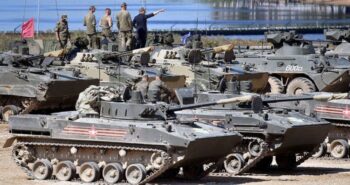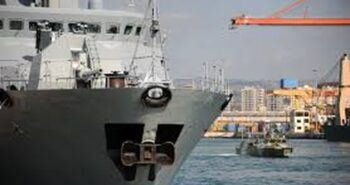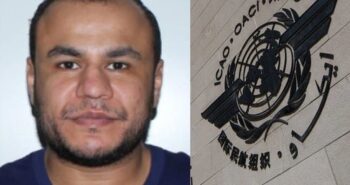
Summary: stagnation in Libya but action by Haftar in the south may bring on a crisis. Paris and Rome at odds.
It is many months since we attempted an analysis of the situation in Libya, and it is noticeable that the International Crisis Group, Al Monitor etc have also spent little time on it.
The reason is simple – stagnation.
– The Government of National Accord in Tripoli has not established its authority,
– The House of Representatives in Tobruk continues to indulge in the kind of politicking that gives Parliamentary government a bad name,
– “Field Marshal”Khalifa Haftar with his “Libyan National Army” (LNA) claims to control Cyrenaica (though Derna remains a disaster area) and would like to control more, much of the real power rests with innumerable militias,
– The UN envoy Ghassan Salamé continues to try to make election bricks without straw, and
– The main problem for Europe (since despite the chaos the level of bloodshed remains low) is the flow of migrants from Africa which find Libya the easiest route to the Mediterranean although in the absence of effective government they face the horrors of people traffickers and organised crime.
Oil continues to be the exception, doing well thanks to the National Oil Corporation led by Mustafa Sanalla, the only institution in Libya which commands general respect; oil production and revenues are at a five-year high.
A UN report of 7 January to the Security Council gives a comprehensive account of developments in Libya and UN activity there since August 2018.
Problems in the far south may possibly provoke a crisis; Haftar forces are seeking to extend their control, and have declared the UN representative an enemy.
Last month Haftar’s forces reported that they had been attacked by a Chadian armed group, killing one and wounding 13, near Traghen in the Sahara 560 miles south of Tripoli.
Traghen is 250 miles north of the border with Chad and the ethnically separate Tubu straddle the border and are often accused of divided loyalties.
On 15 January a spokesman for Haftar’s forces said they had launched a military operation in southern Libya to secure oil and gas facilities and fight extremists; “We announce the start of an operation to liberate the south” (the LNA have made similar announcements in the past).
Reuters were told that LNA units had already move from Benghazi to Sabha, the “capital” of the South; it was not clear whether they were heading for Libya’s biggest oilfield, El Sharara, closed since December because of local disputes.
On 18 January the LNA claimed to have killed Abu Talha al-Libi, a commander in al-Qa’ida in the Islamic Maghreb (AQIM), and two other militants near Sabha.
Also on 18 January Ghassan Salamé reported to the Security Council on a visit to the south, the first by the UN representative since 2012.
He painted a grim picture, from the brutality of IS to lakes of sewage due to lack of investment, infested by foreign mercenaries and common criminals.
The UN was tackling the situation but “it is the Libyan authorities who must shoulder the burden”. In an oral report he referred to the LNA’s move to the south beyond positions they had held before, and later in his remarks to “spoilers” sabotaging political advancement and opening the door “to those who believe there is only a martial solution to Libya’s woes.”
This seems to have been what provoked an unusually strong reaction from the LNA, who on 23 January described Ghassan Salamé as an enemy contributing to Libya’s violent crisis.
Libya is an element in a continuing diplomatic row between France and Italy.
Last week the French Foreign Minister summoned the Italian ambassador to complain after the Italian Deputy Prime Minister Luigi Di Maio accused Paris of creating poverty in Africa because they “have never stopped colonising”, saying that this was among the causes of migration; “The EU should sanction all those countries like France that are impoverishing African countries and are causing those people to leave.”
The French Minister for Europe Nathalie Loiseau said the Italians were playing to a domestic audience and would have no impact in France; “We’re not going to be drawn into a stupidity contest.”
The other Italian Deputy Prime Minister Matteo Salvini said France did not want to bring calm to Libya because its energy interests there clashed with those of Italy.
Reuters quotes a French pundit: “Seen from Rome … there’s a very emotional feeling towards France, as if it has scorned and even abandoned Italy.
From the crisis in Libya, a country Italy knows well, to the migration issue, Italians feel that at each turn they have been deliberately ignored by a country that increasingly, and with less and less justification, looks down on them.”
***
Tripoli clashes subside; setback for National Conference
 High expectations of National Conference Despite a shaky truce negotiated by tribal elders, this week’s clashes in Tripoli’s South have undermined confidence in Libya’s 2019 path to stabilization.
High expectations of National Conference Despite a shaky truce negotiated by tribal elders, this week’s clashes in Tripoli’s South have undermined confidence in Libya’s 2019 path to stabilization.
Politically, any potential delay in the planned January United Nations Support Mission in Libya (UNSMIL) National Conference would prompt militias in Tripoli to reconsider the military option as a viable alternative to preserve the status quo.
The clashes were the result of months of tensions building up between Tripoli’s main militias, the Tripoli Protection Force (TPF), and the Government of National Accord (GNA) PM Fayez Sarraj and Interior Minister, Fathi Bashagha.
By attacking Al-Kaniat militia, the TPF was in fact indirectly renegotiating Tripoli’s security arrangements while opposing Bashagha’s latest decision to assign Tarhunah’s brigades to Tripoli International Airport (TIP).
The TPF issued a statement noting that the force will no longer obey the orders of the Presidential Council (PC) and will only do so should decisions be adopted unanimously by all nine PC members.
The ceasefire remains fragile and neither the TPF nor Al-Kaniat have officially endorsed it.
Clashes could resume with little to no warning in Tripoli’s South and it remains unclear whether TPF/GNA tensions will result in attacks against some GNA officials and/or buildings.
Looking ahead, TPF units will likely hold their positions in the South and could even attempt to attack AlKaniat further into Tarhunah.
Meanwhile, AlKaniat could retaliate, though the group’s bargaining position is weaker than in the Aug/Sep 2018 clashes. However, there could be a silver lining as the latest round of violence could denote an unprecedented and more complex political position taken by militias.
Unlike the Aug/Sep 2018 clashes, the latest “skirmishes” were not simply due to tensions between two militias, but the result of a power struggle between the GNA and Tripoli’s militias who saw an attack against Al-Kaniat as a mere means to an end.
Perhaps, the biggest difference between the two crises is that in the latest situation, Tripoli’s militias -also known as the “cartel” that helped the GNA consolidate its position since 2016- make it clear they are no longer the GNA’s military muscle.
The fact that TPF was forced to exploit an internal division within the GNA (and between PC members) to find a rationale for and justify its operation, acts as strong evidence of militias’ dwindling power to operate unhindered across the capital city; a possible testament to Bashagha and the UNSMIL’s recent efforts to transfer power from armed groups to state institutions, especially the MoI.
In the aftermath of the Zawiya ceasefire and by the end of 2018, there was a tacit realization among the TPF that they now have to play the “political game” to justify any military escalation; both international and local audiences were no longer receptive to opportunistic militia manoeuvres.
In this latest round of violence, the frequency of statements issued by both sides underlines the new political nature of the struggle among militias.
The crisis could be a prelude to the new reality on the ground where militias attempt to cement their position as capable political actors.
While this does not rule out the possibility of skirmishes in the short and medium term across the capital city, militia tensions are unlikely to reach the scale of violence witnessed in the Aug/Sep 2018 clashes.
What we could see instead are targeted attempts by the TPF to coerce Sarraj and/or Bashagha into reversing/enacting legislation. Regardless, it remains to be seen if Sarraj and Bashagha will weather this storm.
It will be a difficult task given the prevailing distrust of Sarraj and in light of the recently-surfaced rivalry within the PC.
Tripoli militias will find it relatively uncomplicated to echo calls to reform the PC and oust Sarraj.
Overall, the situation only raises expectations of the planned National Conference.
_______________




